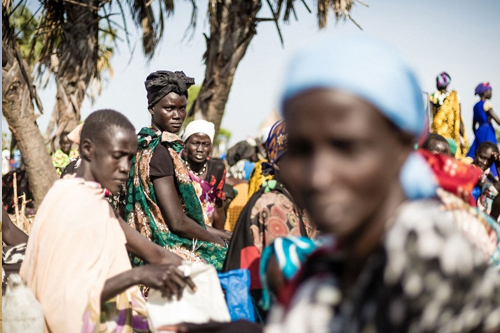Post Graduate Diploma in Peace and Humanitarian Action Course Overview
The main obstacle to development in a country is poor governance, insecurity and elusive peace. This impact of poor governance, insecurity and elusive peace breeds myriads of problems that hinder development in most of African countries. Indeed, disruption of peace and ensuing conflicts is a common phenomenon and affects every aspect of human society. The underlying causes of conflict and threat to peace are many and complex with undesirable ramifications on the stability of human society. Therefore understanding the multifold and inter-related causes of violence and conflict and creating the conditions for moving out of authoritarianism into a culture of peace and democracy remains a major challenge in the world today and more particularly in Africa. Stakeholders in conflict resolution, security and peace building require skills not only to mitigate the impact of conflicts but also to formulate effective strategies in conflict resolution and peace building and consequently the need for formal training to achieve this objective.
Peace building and conflict studies skills are crucial for the stabilization and advancement of society. The peace and conflict studies programme trains experts who can help bring sustainable peace among diverse communities. Conflicts and the attempts to resolve them are utterly inherent in human nature. That is why conflicts generally, and armed conflicts in particular, along with efforts to resolve them, can be traced back to the advent of humans on the earth. An examination of the evolution of armed conflicts in human society reveals humans as a common denominator. The methods and means used in armed conflicts have only been changing up to contemporary times, with the most sophisticated weapons being used. Since armed conflicts have caused untold human suffering, the study of armed conflicts is necessary. The knowledge gained is then directed principally at conflict and crisis prevention and resolution. The concepts learned can apply to the different armed conflicts that have plagued mankind over the years, thus permitting the participants to be able to appreciate their dynamics and make comprehensive proposals for their resolution…
Course Content
- Introduction to Peace Operations
- Milestones in UN Peacekeeping
- Understanding Conflict and Conflict Analysis
- Conflict Resolution
- Human Security in Post-Conflict Intervention
- Transitional Justice and Peace-building
- Natural Resources Management
- Women and Peace-building
- Leadership in Peace Operations
- Protection of Civilians in Peace Operations
- International humanitarian law: a refresher
- Human rights in armed conflicts
- The protection of civilians: challenges and trends
- Peace operations, human rights and humanitarian law
- Humanitarian action and humanitarian law
- International criminal jurisdiction and armed conflicts
- Research Project
Minimum entry requirements
Common regulations governing Post-Graduate Diplomas shall be applicable.
The following shall be eligible for admission.
- a) Holders of a Bachelor’s degree from a recognized University
- b) Holders of an equivalent qualification from any other recognized Institution.
Course Fees: € 1,500
Course duration: one year (2 semesters)
Assignments: candidates shall be expected to submit 10 assignments (Continuous Assessment test) that Account to 70 % of their Work and a Project Paper at the Tail end of the course, which accounts to 30 % of the course Work.
Regions Targeted: Global
Courses Fees €1500
Course duration: 1 year (2 semesters)




